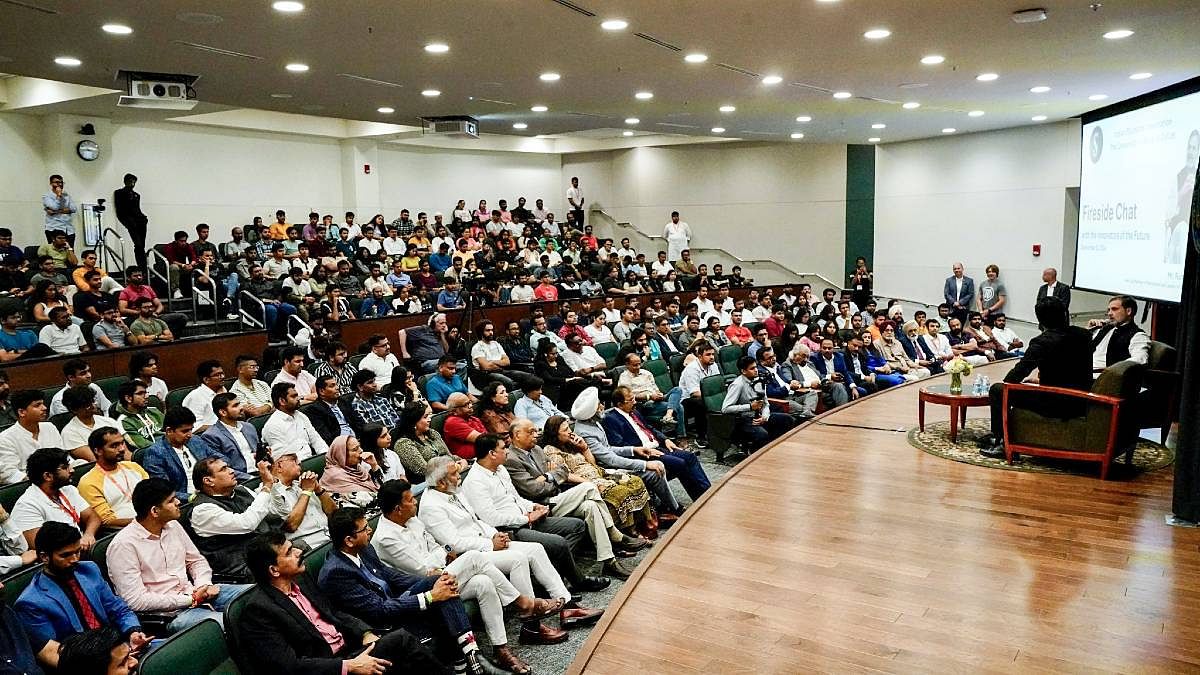 |
|
Rahul Gandhi's recent trip to the US has sparked debate with his pronouncements on the differences between Indian and American leadership styles. In a series of public engagements, including interactions with students and the Indian diaspora, Gandhi offered a unique perspective on the essence of Indian politics, drawing parallels with religious traditions and the legacy of Mahatma Gandhi. He contrasted the American leader's focus on a 'promised land' with the Indian leader's emphasis on 'self-destruction' and 'listening to others.'
Gandhi's central argument revolves around the concept of 'devta' in Hindu tradition, which he defines as a person who embodies complete transparency, achieved through the destruction of their ego and internal structures. He applies this concept to Indian politics, suggesting that a true Indian leader must suppress personal ambition and prioritize the voice of the people. He uses the examples of Mahatma Gandhi and Hindu deities Rama and Shiva to illustrate this principle, highlighting their journeys of self-transformation and relinquishing personal desires.
Gandhi's remarks extend beyond a philosophical analysis, addressing the current state of the Indian economy and its struggle with unemployment. He criticizes India's lack of focus on manufacturing, contrasting it with countries like China and Vietnam that have successfully navigated employment challenges. He points to the Goods and Services Tax (GST) as a policy impediment to manufacturing growth, arguing that its structure favors consumption over production. His comments highlight a key challenge for the Indian government, which has been facing pressure to create more jobs and stimulate economic growth.
Gandhi's visit also saw him engage in a direct attack on the Rashtriya Swayamsevak Sangh (RSS), the ideological parent of the Bharatiya Janata Party (BJP). He characterized the RSS as advocating for a singular vision of India, contrasting it with the Congress party's belief in a 'multiplicity of ideas' and a union of states. This attack has fueled political tensions, with BJP leaders responding with accusations of betrayal and undermining national interests. Gandhi's comments reiterate the long-standing ideological divide between the Congress and the BJP, which continues to shape the political landscape of India.
Rahul Gandhi's pronouncements on Indian politics during his US trip have generated significant attention and debate. His unique perspective on leadership, self-destruction, and the role of the people in political discourse has sparked both admiration and criticism. While his analysis of the Indian economy and job crisis has garnered attention, his attack on the RSS has further inflamed political tensions. Overall, his trip serves as a reminder of the complexities and challenges facing India, as well as the ongoing ideological battle between different political forces.
Source: How and why Rahul Gandhi thinks US politicians are different from Indian leaders
